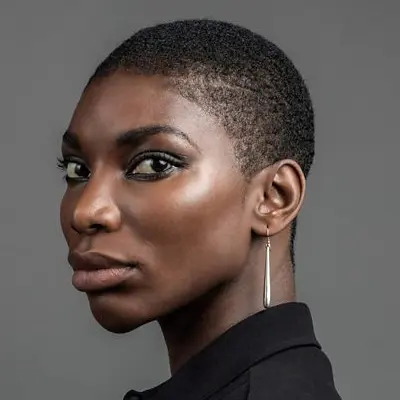Michaela Coel rejected Netflix's $1 million offer for I May Destroy You after she couldn't secure 5% ownership of the show
-

In a profile of the Chewing Gum and I May Destroy You star and creator, Vulture's E. Alex Jung shares the lesson Coel learned while shopping the show that would end up on BBC and HBO. "This time around, she wanted transparency from her collaborators," writes Jung. "She learned the power of saying no. She declined to do a third season of Chewing Gum and an offer to have a production company under the now-defunct Retort. ('Something about it didn’t feel clean.') When she first began pitching the concept for I May Destroy You in spring 2017, Netflix offered her $1 million upfront — $1 million! But when she learned they wouldn’t allow her to retain any percentage of the copyright, she said no. No amount was worth that. She fired CAA, her agency in the U.S., too, when it tried to push her to take the deal after she learned it would be making an undisclosed amount on the back end. Throughout the fallout with Netflix and CAA, Coel asked questions relentlessly. She is eager, almost giddy, to say she doesn’t know something (even if she may have an inkling) because of the way it forces someone else to explain it to her. She has discovered that the explanation is where people begin to falter and the fissures of conventional wisdom crack wider. It may be business as usual, but is it right? Is it good? Coel recalls one clarifying moment when she spoke with a senior-level development executive at Netflix and asked if she could retain at least 5 percent of her rights. 'There was just silence on the phone,' she says. 'And she said, "It’s not how we do things here. Nobody does that, it’s not a big deal." I said, "If it’s not a big deal, then I’d really like to have 5 percent of my rights."' Silence. She bargained down to 2 percent, one percent, and finally 0.5 percent. The woman said she’d have to run it up the chain. Then she paused and said, 'Michaela? I just want you to know I’m really proud of you. You’re doing the right thing.' And she hung up." Months later, Coel pitched I May Destroy You to BBC, which gave her everything she wanted, including full creative control and ownership rights. HBO came on board as a co-producer during development.
ALSO:
- Curiosity is what distinguishes I May Destroy You from others in the cadre of post–Me Too entertainment: "Rather than immediately reducing bad sexual encounters into a singular label, it digs, peeling back the layers of power and privilege that are always at play when a person is assaulted," says Sangeeta Singh-Kurtz. "In doing so, it engages more capably and thoughtfully with the narrative of victimhood and the nature of harm than anything else in its genre. A genre whose harbingers — Bombshell, The Assistant, The Loudest Voice — have often framed these stories as not only straight and white, but unambiguous."
- Paapa Essiedu says because I May Destroy You is hard to watch, it's good that it's being released weekly: "I watched a rough cut, and now I’m very tentatively rewatching the episodes on TV," says Essiedu. "And even though I’m in scenes, I’m seeing things and noticing connections for the first time. There’s layers to this work, which means I think it will really benefit from rewatching. Because it’s so direct and some of it is so hard to watch, sometimes your brain can’t tolerate accessing the nuance that lies underneath it. It’s good that the episodes haven’t been released all at once, because I think it’s really important that there’s time so we can properly taste it."
- Essiedu recalls working on a drama school project with Coel: "Yeah, we did this final-year showcase, which is your introduction to all the professional agents," he says. "A lot of the work we’d done was made for white audiences by white authors that we had to do a lot of weird mental gymnastics to get ourselves in the right frame of mind to do. We wanted to do something that represented us and characters that spoke in our voices. So Michaela wrote a sick scene for the two of us. I actually ended up getting my agent from that, so I owe Michaela a whole lot!"
- Michaela Coel praises BBC for letting her do anything: “Honestly, friends are like: ‘Oh, God, was it hard doing it with the BBC?’ I’m like: ‘Guys, they let me (do anything).’ You know those things you put your toddler in – some sort of harness?” Reins. “Yeah? The BBC took them off. And I just went running, sh*tting, vomiting, period-ing everywhere. And they were like: ‘Good!’”
- Coel compared her first day on the set of Channel 4's Chewing Gum to a slave ship: She says five Black cast members were forced to share one trailer, while a white cast member had a trailer all to herself.
- Essiedu's Kwame honors the Black British gay male experience
TOPICS: Michaela Coel, BBC, Channel 4, HBO, Netflix, Chewing Gum, I May Destroy You, Paapa Essiedu
More Michaela Coel on Primetimer:- HBO is leaving Euphoria fans to fend for themselves after "traumatizing" them
- Michaela Coel's Emmys speech dedicated to sexual assault survivors was something rare -- a speech directed at viewers, not attendees
- The Emmys failed to reflect a TV landscape that is exciting, daring and more abundant than ever
- Seven Takeaways From the 2021 Emmy Awards
